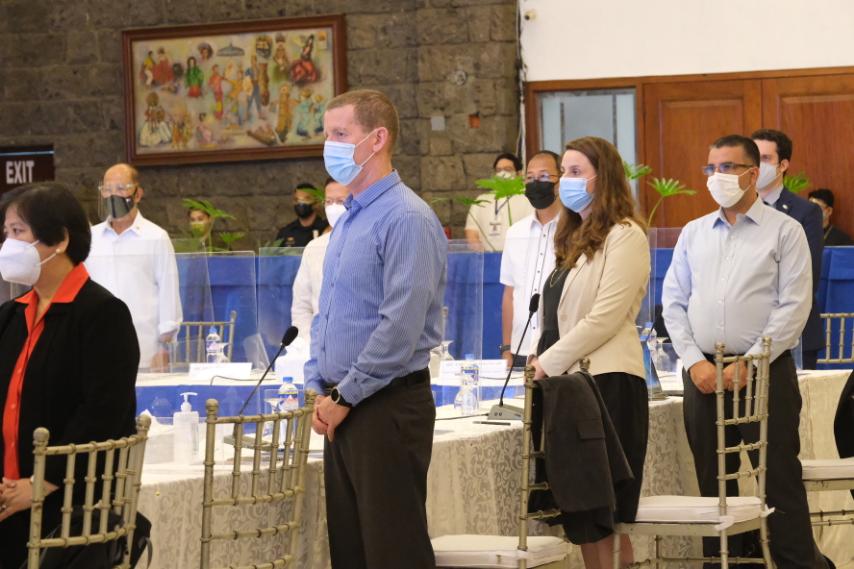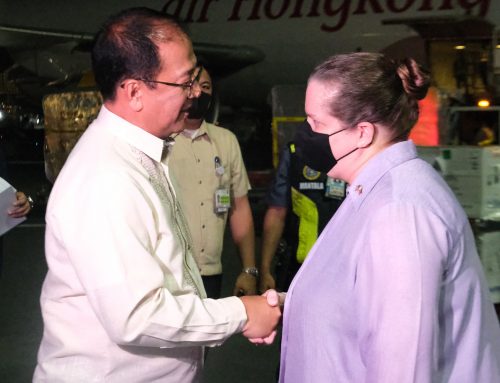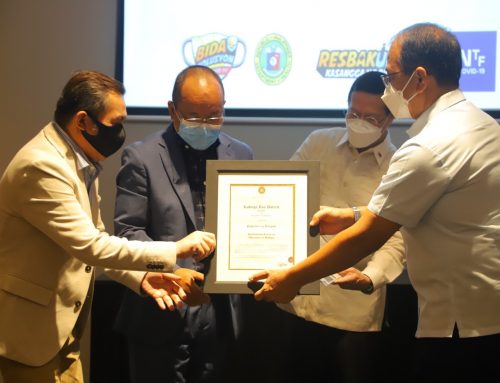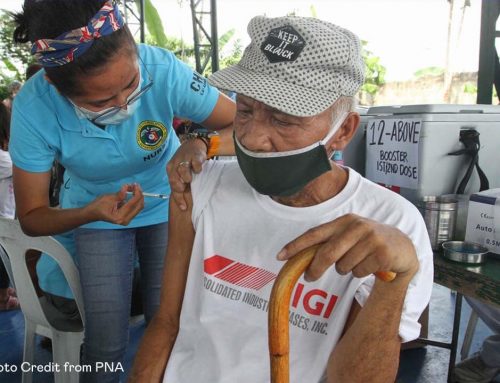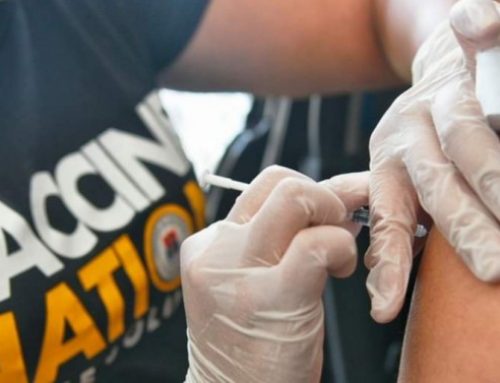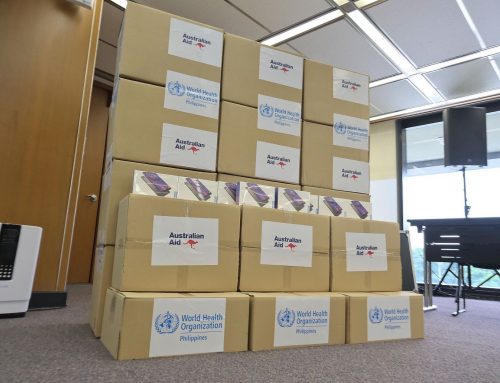CAMP AGUINALDO, QUEZON CITY, (21 June 2021) — Visiting Israeli health experts shared key strategies implemented by their government that has enabled the country to successfully contain the COVID-19 pandemic, reduce active cases, and effectively roll out its vaccine program during a meeting with the country’s top COVID-19 task force officials.
“People would walk with other people, they would shake hands, but they would do RT-PCR tests every week. Policemen and traffic enforcers were also being tested every week,” said Ben Zaken, deputy director general of the Ichilov Medical Center.
“We provide more testing to the people who would want to take them anytime for free,” Zaken added.
He said that people who have been vaccinated in other countries must present certificates or other documents that prove they have received both doses.
Zaken said that once these people are able to comply with these requirements, they can proceed to their final destination. If unable to do so, they have to undergo quarantine and get vaccinated.
Dafna Segol, consultant of Healthcare Policy and Innovation, stressed that their people’s strict adherence to quarantine measures and border protocols was crucial in bringing down COVID-19 cases.
“Everyone who enters Israel has to take a PCR test, be vaccinated, and quarantined for 14 days,” Segol said.
The three-member delegation arrived in the country on Sunday to share their experiences and provide advice to the Philippine government on how it can further improve its vaccine roll-out to effectively curb the spread of the deadly virus.
Pillars in Israel’s vaccination program
Members of the delegation identified the main pillars of their country’s immunization program. First, they ensured that the program was flexible so that it could effectively respond to emerging realities on the ground.
Second, their medical personnel maximized the doses from each vial to avoid wastage and ensure the fast and efficient administration of the vaccines.
And third, the government’s information campaign on the vaccine program was anchored on clear messaging to increase public uptake, while ensuring efficient data gathering as well the proper storage of the vaccines in one central location.
“The data and information are keys to succeed in this battle. Everyday, we monitor the data by location and severity, where the traffic of the virus [is] and its location, and how many people are getting vaccinated everyday which are crucial in managing the pandemic,” Zaken explained.
A team effort
The Israeli experts also underscored the importance of teamwork among the stakeholders to ensure the success of the vaccination program.
“One thing that led us to the prioritization process was the team effort by the people who were appointed by the head of the state,” Segol noted.
“They were diversified, and there was patience in the organizations in Israel. They took decisions together and represented each part in Israel,” she added.
According to Segol, their team helped in developing the prioritization scheme for the various sectors, which include medical personnel and health frontliners, senior citizens, aid workers, and teachers, and the rest of the population from the oldest to the youngest.
In April this year, Israel lifted its mask wearing policy, as the country recorded less than 15 COVID-19 cases per day.
Since the start of the pandemic, 840,000 out of Israel’s 9.2 million population contracted COVID-19, where 6,500 people have died.
Since Israel rolled out its vaccination program in September 2020, the government has been able to fully vaccinate 57% of its citizens, wherein 90% of those aged 50 and above have completed their inoculation.
For his part, Deputy Chief of Mission Nir Basham highlighted the strong relationship between the Philippines and Israel, as the latter has supported the Philippines’ COVID-19 response and mitigation efforts since the start of the pandemic.
“Israel is also the first country in the world to vaccinate 30,000 overseas Filipino workers (OFWs) and Filipino students and diplomats, free of charge, with the Pfizer vaccine,” he pointed out.
“The visit of the expert delegation is another aspect in the special relations between the Philippines and Israel,” Basham added.
Gratitude to Israel
The Philippine government expressed its gratitude to the Israeli delegation for sharing their knowledge and expertise to their Filpino counterparts.
“I wish to extend my sincerest gratitude to the Israeli government for generously sharing your experiences and learnings from your national immunization program and campaign,” said Secretary of Health Francisco Duque III.
“Israel’s story continues to inspire global conversations. Today’s conversation enshrines the courage in facing the COVID-19 and proving that vaccines are safe and effective,” Duque added.
National Task Force against COVID-19 Chief Implementer Carlito Galvez Jr. also thanked members of the contingent for demonstrating how nations across the globe can help each other in the fight against the pandemic.
“Israel has shown that the battle against COVID-19 can only be won through a collective effort. We can succeed if nations help each other and work together. This is the power of unity and cooperation,” Galvez, who is also the country’s vaccine czar.
“It is our hope that through our discussions in the coming days, we would be able to learn from the Israeli experience and apply these lessons in our battle against the pandemic, particularly on how we can further improve our information and data management and vaccine deployment strategies,” Galvez added.
The delegation, which also includes Adam Segal, logistics and operations manager of Salomon Levid & Elstein Ltd, is also scheduled to meet with representatives of the United Nations and World Health Organization, as well as inspect several of the country’s cold chain facilities and vaccination hubs during their one-week stay in the Philippines.
The meeting was als attended by NTF COVID-19 Chairperson Defense Secretary Delfin Lorezana, and NTF COVID-19 Deputy Chief Implementer Vivencio Dizon. ###


